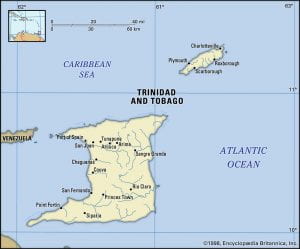Title: Bad Joke
General Information about Item:
- Genre: Gesture
- Place Collected: Collis Center, Dartmouth College
- Date Collected: November 12th, 2019
- Country of Origin: Peru
- Informant: Bailey Burke (myself)
Informant Data:
- Bailey Burke is a Dartmouth College student graduating in 2020. She was born in New York City, but moved to Westchester, NY in 2002. She studies computer science and neuroscience, and loves to play tennis, sing, hike, and hangout with her family. She studied abroad in Peru from September 2018 until the end of November 2018. She traveled all around Peru with a Dartmouth professor and 7 other Dartmouth Students. Her school/homestay was located in Cusco, and she had two Peruvian professors in addition to the Dartmouth professor. The group would constantly explore the beautiful city of Cusco, and a lot of the students would befriend locals. She was completely immersed in the culture, and because of that, she was able to pick up on a lot of things that were unique to the natives.
Contextual Data:
- Social Context: Bailey first learned about this hand gesture after watching people on her program interact with Peruvian adolescents. Even though their Spanish was near fluent in terms of conversing, they didn’t know how to properly deliver jokes, or how to nail the delivery when speaking Spanish. So it was commonly used after one of the students in the group would try to say something funny, or when someone tried to directly translate a joke from english into Spanish, but it does not mean the same thing in Spanish. It basically means that someone just told a bad joke, or that the joke that someone told did not land well. The person using this is light-heartedly making fun of the person who told the joke.
- Cultural Context: Peru is a country in western South America, with an old and complex background. It’s the birthplace of the ancient Incan Empire, and it’s known for its natural wonders and archeological marvels. In the 16th century, the Spanish Empire conquered the region, but Peru successfully gained its independence in 1824. Spanish colonization strongly influenced the culture of Peru. The sovereign state of Peru is a republic comprised of 25 regions. Talking with your hands is commonplace in peru. Peruvians are very animated, sometimes loud, and are collectively and generally not shy. Being expressive is common. According to behavior scientists in a study, in face-to-face conversations in Peru, around 55% is non-verbal and gestural (Passport To Travel Peru), supporting the idea that more than half of Peruvians converse and communicate through motions, signaling, and expression.
Item:
- This gesture is used after someone just told a bad joke. Someone points at the joker, and then in a swift & connecting motion, points at the door. At the same, the person pointing says “ya se fue, ya se fue.” It implies “you should leave” as a harmless joke, because the joker just delivered a horrible joke, or one that wasn’t funny. It can loosely translate to “you should just get out of here,” because the person telling the joke failed. It can also be used when someone has an idea that just isn’t good. “Ya se fue” means “he’s gone.” It can be paired with a head shake, and also sometimes is only paired with one “ya se fue” or no verbal phrase at all. Someone can also just say “se fue.” The hand can move fast, or it can be a slow motion. There is no definitive answer as for how it came to be, but Peruvians like to playfully make fun of each other. It may have something to do with the idea that instead of just letting everyone sit there awkwardly after a bad joke, Peruvians want to diffuse awkwardness and make a funny response.
Associated file (a video, audio, or image file):
Collector’s Comments (Interpretation): This relates to Peruvian culture because Peruvians love to make pranks and harmlessly joke around, so this parallels their vibrant energy. Generally, since the person who told the joke knows that this gesture and expression is also a joke, it is meant to make light of a funny/failed situation, and to make things less awkward. This shows that they are also witty/don’t take things too seriously, and are playful in nature.
Collector’s Name: Bailey Burke
Tags/Keywords:
- Peru
- Gesture
- Bad Joke




